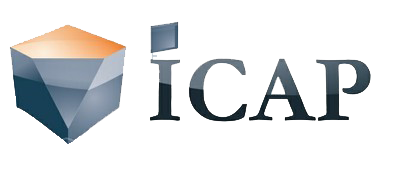Tecnologias desterritorializadas e confiança: NFT’s e blockchain como sinalizadores para a mutação do turismo
DOI:
https://doi.org/10.29149/mtr.v8i2.7334Keywords:
desterritorialized technologies, blockchain, NFTs, trust, tourism’s mutation.Abstract
The present text brings a research report, that has as theme the interface of technology, trust and tourism, with the following study object: NFTs (Non-Fungible Token) and the outsourcing of trust, as clues to tourism’s mutation. The study was carried through observations of discussions held in the CriptoArteBr community’s channel, available at Discord platform, and through the observation of the community members’ participation in two live streams in Homeostasis Lab’s channel in Youtube, as well as in an episode of Braincast podcast. The general objective of this study is understood as to observe how the outsourcing of trust, realized through NFT adoption by contemporary digital artists in Brazil, can point to reflections to the mutation of tourism. The specific objectives are: a) to discuss differents concepts about trust; b) to present what are NFTs and how they are outsourcing trust; c) to identify clues to the mutation of tourism, present in the process of outsourcing of trust realized by contemporary digital artists in Brazil in the aforementioned objects of study. The literature review of this study used writers such as Luhmann (2000, 2017) and Terres and Santos (2010, 2011, 2013, 2015) to discuss trust. The vision of tourist-communicational-subjective ecosystems of Baptista (2020) was used to consider the concept of tourism. Finally, to contextualize NFTs and Blockchain Chevet (2018) and O’Dwyer (2020) were referenced, as well as other authors and researchers. The methodological strategy adopted for this research is the Cartography of Knowledge (Baptista, 2014), which explores simultaneously four different trails: Personal Knowledge, Theoretical Knowledge, Production Plant and Intuitive Research Dimension. As a result, we realized that the Non-Fungible Tokens (NFTs), through blockchain technology, can outsource the principle of trust to technology, although not in its entirety. It can also be perceived that the CriptoArteBr community discussed some significant topics related to current questions in tourism that need to be considered.
References
Akerlof, G. A., & Shiller, R. J. (2009). O espírito animal: como a psicologia humana impulsiona a economia e a sua importância para o capitalismo global. Campus.
Alves, S. (5 mar. 2021). Kings of Leon lança álbum com tokens NFT. B9. Recuperado de https://www.b9.com.br/140052/kings-of-leon-lanca-album-com-tokens-nft/.
Anders, P. (2003). Ciberespaço antrópico: definição do espaço eletrônico a partir das leis fundamentais. Arte e vida no século XXI: tecnologia, ciência e criatividade. São Paulo: UNESP.
Baptista, M. L. C. (2020). “Amar la trama más que el desenlace!”: Reflexões sobre as proposições Trama Ecossistêmica da Ciência, Cartografia dos Saberes e Matrizes Rizomáticas, na pesquisa em Turismo. Revista de Turismo Contemporâneo, 8(1), 41-64. DOI: https://doi.org/10.21680/2357-8211.2020v8n1ID18989.
Baptista, M. L. C. (2014). Cartografia de saberes na pesquisa em Turismo: proposições metodológicas para uma Ciência em Mutação. Rosa dos Ventos, 6(3), 342-355. Recuperado de https://www.redalyc.org/pdf/4735/473547041003.pdf.
Braincast. (25 maio 2021). NFT’s: como o blockchain colocou os memes à venda [Podcast]. Spotify. https://open.spotify.com/episode/76CHm82v3Ur6i4VFNoJjnx?si=rUAN40SzQRqrlQVmDAzo7g
BrazilLAB & Fundação Brava (2019). Como o Brasil pode fomentar um ecossistema de profissionais digitais?. Recuperado de https://profissionaisdigitais.brazillab.org.br/.
Chevet, S. (2018). Blockchain Technology and Non-Fungible Tokens: Reshaping value chains in creative industries. Dissertação, Escola de Altos Estudos Comerciais de Paris, Paris, França. Recuperado de https://papers.ssrn.com/sol3/papers.cfm?abstract_id=3212662.
Coelho, M. H. P., & Sakowski, P. A. S. (2014). Perfil da mão de obra do turismo no Brasil nas atividades características do turismo e em ocupações. Ipea. Recuperado de https://www.ipea.gov.br/extrator/arquivos/td_1938.pdf.
Gusson, C. (12 out. 2020). Blockchain pode ajudar a resgatar a confiança do cidadão, diz BNDES. Cointelegraph Brasil. Recuperado de https://cointelegraph.com.br/news/blockchain-can-help-rescue-citizens-trust-says-bndes.
Instituto de Tecnologia e Sociedade do Rio de Janeiro (2018) Relatório blockchain para aplicações de interesse público. Recuperado de https://somos.itsrio.org/relatorio-blockchain-para-interesse-publico.
Homeostasis Lab. (26 abr. 2021). Reflexões sobre blockchain, NFT e arte digital [Video]. Youtube. https://www.youtube.com/watch?v=Ua0UL_q7YhU&t=860s
Homeostasis Lab. (29 abr. 2021). Desmistificando NFT [Video]. Youtube. https://www.youtube.com/watch?v=EDoaRwlXbDA&t=4916s
Luhmann, N. (2000). Familiarity, confidence, trust: Problems and alternatives. Trust: Making and breaking cooperative relations, 6(1), 94-107. Recuperado de http://citeseerx.ist.psu.edu/viewdoc/download?doi=10.1.1.23.8075&rep=rep1&type=pdf.
Luhmann, N. (2017). Trust and power. Cambrigde, Polity Press.
Mattei, S. E. (14 abr. 2021). Should You Worry About the Environmental Impact of Your NFTs?. ARTNews. Recuperado de https://www.artnews.com/art-news/news/nft-carbon-environmental-impact-1234589742/.
McAllister, D. J. (1995). Affect-and cognition-based trust as foundations for interpersonal cooperation in organizations. Academy of management journal, 38(1), 24-59. DOI: https://doi.org/10.5465/256727.
Menotti, G., & Velázquez, F. (26 mar. 2021) Shangri-lá ou Serra Pelada? A estética política dos NFTs. Revista Zum. Recuperado dehttps://revistazum.com.br/radar/estetica-politica-dos-nfts/.
Minayo, M. C. S. (2001). Pesquisa Social. Teoria, método e criatividade. Petrópolis, Vozes.
Moesch, M., & Beni, M. C. (2016). Do discurso sobre a ciência do turismo para a ciência do turismo. Seminário da Anptur, 11. Recuperado de http://www3.eca.usp.br/sites/default/files/form/biblioteca/acervo/producao-academica/002740362.pdf.
Mofokeng, N., & Fatima, T. (2018). Future tourism trends: Utilizing non-fungible tokens to aid wildlife conservation. African Journal of Hospitality, Tourism and Leisure, 7(4), 1-20. Recuperado de https://www.ajhtl.com/uploads/7/1/6/3/7163688/article_21_vol_7_4__2018.pdf.
O’Dwyer, R. (2020). Limited edition: Producing artificial scarcity for digital art on the blockchain and its implications for the cultural industries. Convergence, 26(4), 874-894. DOI: https://doi.org/10.1177/1354856518795097.
O'Neill, O. (2002). A question of trust: The BBC Reith Lectures 2002. Cambridge University Press.
Autor1 (2021). Confiança e tecnologias digitais: uma discussão sobre as ações do Ministério do Turismo brasileiro na pandemia de COVID-19. Dissertação, Universidade de Caxias do Sul, Caxias do Sul, Brasil.
Autor1; & Autor2 (2020a). Confiança como dispositivo para a retomada do turismo pós-COVID-19. In: XVII Seminário da ANPTUR - Impacto da pesquisa e da pós-graduação em turismo e hospitalidade na sociedade, Brasil.
Autor1; & Autor2 (2020b). Smart destinations e tecnologias comunicacionais digitais: informação como princípio básico para a retomada do turismo no brasil em meio à crise do novo coronavírus. In: XI Postgraduate Conference ESGHT-ISCAL 2020 | Management, Hospitality and Tourism (p. 52-52), Algarve, Portugal.
Autor1; & Autor2 (2021a). Confiança como dispositivo para a retomada do turismo pós-COVID-19. Cenário: Revista Interdisciplinar Em Turismo E Território, 9(1), 120–134.
Autor1; & Autor2 (2021b). Uberización y confianza en las relaciones como retos y potencialidades del turismo. In V. P. C. Borges & J. R. R. Soares (Eds.), Turismo y desarrollo: Contextos diversos. Editora Thomson Reuters Aranzadi.
Pierre, L. (2010). Cibercultura. São Paulo, Editora 34.
Pinterest (2020). Pinterest 100 | The Top Pinterest Trends for 2020. Recuperado de https://www.pinterest100.com/en-us/
Terres, M. S., & Santos, C. P. (2010). Confianças cognitiva, afetiva e comportamental em trocas business-to-consumer. Revista de Administração FACES Journal, 9(3). DOI: https://doi.org/10.21714/1984-6975FACES2010V9N3ART199.
Terres, M. S., & dos Santos, C. P. (2011). Exame da confiança interpessoal baseada no afeto. REGE-Revista de Gestão, 18(3), 427-449. DOI: https://doi.org/10.5700/rege434.
Terres, M. S., & Santos, C. P. (2013). Desenvolvimento de uma escala para mensuração das confianças cognitiva, afetiva e comportamental e verificação de seus impactos na lealdade. Revista Brasileira de Marketing, 12(1), 122-148. DOI: https://www.redalyc.org/pdf/4717/471747475006.pdf.
Terres, M. S., & Santos, C. P. (2015). O papel moderador das consequências na relação entre confiança e seus antecedentes e consequentes. REGE-Revista de Gestão, 22(2), 257-273. DOI: https://doi.org/10.5700/rege562.
Downloads
Published
How to Cite
Issue
Section
License
Copyright (c) 2022 Rudinei Picinini

This work is licensed under a Creative Commons Attribution 4.0 International License.
Authors who publish with this journal agree to the following terms:
- Authors retain copyright and grant the journal, without cost for the journal, right of first publication with the work simultaneously licensed under a Creative Commons Attribution License that allows others to share the work with an acknowledgment of the work's authorship and initial publication in this journal.
- Authors are able to enter into separate, additional contractual arrangements for the non-exclusive distribution of the journal's published version of the work (e.g., post it to an institutional repository or publish it in a book), with an acknowledgment of authorship and its initial publication in this journal.
- Authors take full responsibility for their opinions expressed in the works published in this journal.
















